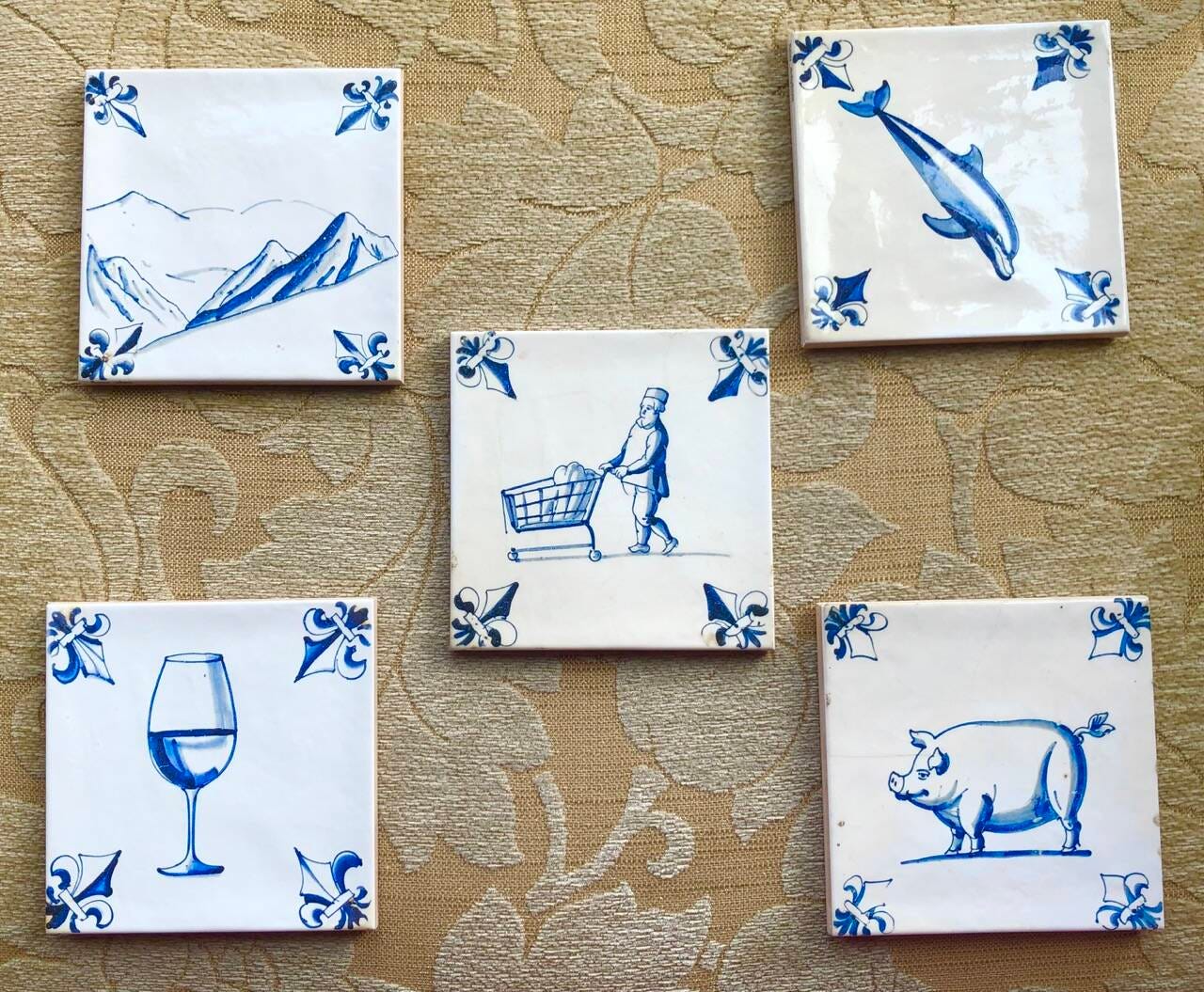Start-up AI business finds its tile in Stoke-on-Trent
In much the same way that Stoke-on-Trent made pottery well before the start of the Industrial Revolution - and was therefore well-placed to benefit from the innovation and prosperity which came with it - the city is now set to enter the brave new world of the ‘AI Revolution’.
Amidst all the hype, hope, and fear, AI has become an irresistible force for change. But at the time of writing, a simple search of the web for “AI in ceramics in Stoke-on-Trent” comes up with one main result: and that’s the story of a London-based start-up business which now turns out AI-generated Delftware tiles.
Founded in May, Not Quite Past is the brainchild of a 25 years old software engineer Adam Davies and a 27 years old schoolteacher with a background in art, Jack Marsh, from London.
So, Not Quite Stoke-on-Trent… But even London-born Sir Henry Doulton had to start somewhere. And his path to The Potteries included two years at the University College School in London, where he developed a love of literature before he became an inventor and manufacturer of ceramics, blazing a trail with what would become Royal Doulton - first, in Lambeth and later in the UK capital of ceramics, the world-famous Potteries of Stoke-on-Trent.
Fast-forward almost 150 years and, these days, it’s American-born Davies - with a statue of Josiah Wedgwood watching-on through the window of a café in Stoke railway station - who is talking about the latest advances in the production of certain ceramics.
Every bit as technically astute and experimental in his field, as those founding fathers of the British pottery industry were in theirs, he explains why Delftware tiles are the perfect fit for a product created by artificial intelligence.
“The name of the company was Jack's idea, and came about because we were aiming for historic styles, but didn't want to be quite like the past. So, quirkily imaginative rather than slavishly imitative,” he begins.
“AI can help anyone put their own designs and decorative ideas, onto objects. And Delftware is traditionally that little bit weird, little bit wacky, and little bit witty. It’s very playful. It’s fun. And very often with lots of mistakes and misshapes”.
Marsh and Davies are both conscious of the concerns AI usually raises in relation to creativity. But keeping it within context, neither believe AI is about to replace design, or art. “They will coexist,” says Davies.
And, for now, their Delftware tiles are helping Not Quite Past to become the latest name helping to put the name of Stoke-on-Trent, with all of its ceramics history and heritage, onto the map of the United Kingdom.
“Basically, the software we have created means that if you show AI a picture of Delftware tiles, it learns, and ‘gets’ the look and feel of what it’s all about, and is then able to create something which looks pretty identical. Every single tile it comes-up with is unique; and so far we’ve processed around 60,000 designs.”
Many of those have now reached highly satisfied customers. “Yeah - it’s cool. People seem to like them, and the feedback is like - ‘This is just the best thing!’.”
Marsh and Davies took some time deciding where the finished product would be made. Like countless others before, it was that cluster of ceramic talents in The Potteries which persuaded them that Stoke-on-Trent would be their base; and Digital Ceramic Systems in Tunstall their workshop and distributor.
He continues: “All anyone needs to do its log in to our website, type in around 10-15 prompts, pick which they like, and that reaches the team in Tunstall, and it’s mailed-out from there”.
Each tile costs £9.99; and one of the reasons why they chose Digital Ceramic Systems is that as well as offering excellent technology, they can also produce one-off, short runs or any multiples of units. Orders are now being received from interior designers, and for larger “installations”.
The national media has also picked-up on their success; and the pair are already looking ahead, with the germ of an idea to branch out one day into AI-generated De Morgan tiles, and William Morris-style wallpaper.
Davies himself was born and raised in Wichita, Kansas, the "Air Capital of the World" - a title which, despite recessions and decline, firmly remains to this day. Today, he’s bringing all that (and AI) with him to Tunstall, deep in the heart of a “Ceramics Capital of the World”.




